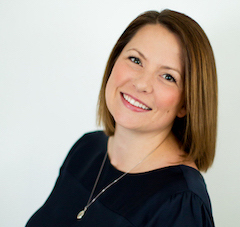Your cart is currently empty!
FASD NPN Spotlight: Montana State University and NACCHO
FASD United is excited to spotlight each of the organizations that are part of CDC’s National Partner Network (NPN), a collaborative coalition of organizations dedicated to advancing key goals, including reducing prenatal alcohol exposure (PAE) and substance use, enhancing support services and access to care, and improving the identification and health of children and families affected by FASDs (CDC, 2023). As a proud participant in this collaborative effort from 2022 to 2026, we are excited to contribute to public education on FASD and prenatal substance exposure alongside these exceptional partners.
This June, we are proud to feature Montana State University (MSU) and National Association of County and City Health Officials (NACCHO), two groups who work together as part of the NPN. I spoke with Samantha Pinzl, Research Scientist at the Center for Health and Safety Culture (CHSC) at MSU, along with Elana Filipos, Senior Program Analyst at NACCHO. Samantha and Elana both spoke enthusiastically about the importance of engaging with local health departments (LHDs) to promote substance-free pregnancies and address FASDs. More information on their work is available on NACCHO’s website.

Samantha has a background in community health education and talked about how she has always been drawn to maternal and child health issues, with a passion for addressing these issues with LHDs. Samantha says, “This project aiming to promote substance-free pregnancies and address FASDs fits really nicely within the Center’s priority of preventing the misuse of substances, and it’s been really great to work on.”
As Samantha puts it, “I’ve always had a big space in my heart for LHDs and want them to see the value they give to their communities. They have deep connections with community stakeholders, directly care for those who may have limited access to healthcare, and provide important education to the public.”

Elana also comes from a public health background and remarks that, “I’ve always had a passion for all maternal and child health topics.” Elana is proud of NACCHO’s work with over 3,300 LHDs across the country, referring to them as local leaders who uplift communities and improve health. “We really meet communities where they’re at to address issues around FASD” which Elana calls “an increasingly important topic because it impacts pregnant and postpartum people, as well as children across the lifespan.”
Samantha is the Project Coordinator for the Partners for Substance-Free Pregnancies Network, a group convened by NACCHO and the CHSC to bring together multidisciplinary partners from LHDs to share resources and learn from each other by exchanging information, best practices, and providing feedback.
Samantha describes the network, which meets quarterly, as “working to promote substance-free pregnancies, prevent FASDs, and advance the FASD community forward through family support.” Elana says, “The collaborative space that we’ve created allows LHDs to uplift each other’s work and know that they are not alone in addressing FASD.” Samantha emphasized that these departments understand the social determinants of health and have experience with other highly stigmatized health areas. “Rather than focus on a single population, we’re showing how everyone in our communities play a role when it comes to substance-free pregnancies and FASDs.”
MSU and NACCHO are developing resources and educational tools for health department staff to build knowledge and capacity to integrate substance-exposed pregnancy and FASD prevention into their existing efforts. Samantha says, “We’re helping LHDs see how they can promote substance-free pregnancies and support families living with FASDs.” As Elana points out, “All local health departments are so different, which makes it all the more rewarding to bring these groups together in a shared space with common goals.” The network is truly inclusive, from professionals with extensive experience with FASD populations, to LHD staff that are new to the issue.
Making clear that “FASD is not an individual issue,” Samantha understands the stigma around FASD and how more people need to see how they can both prevent FASDs and support those who have been diagnosed. “NACCHO is key to connecting us with communities, and I’m most proud of the way the Center is engaging with local communities. We would not be successful without partners.” Elana points out that, “FASD is a big issue for LHDs to address, and there is real strength in numbers.”
Looking forward, MSU and NACCHO will be increasing the availability of FASD resources for LHDs. Later this summer, they will be launching a communication guide for LHDs to promote substance-free pregnancies and prevent FASDs. This will feature inclusive and non-stigmatizing messages, utilizing plain language to reach a variety of audiences. Development of the guide commenced after the team heard firsthand how more communication tools would significantly enhance FASD work in LHDs.
NACCHO and MSU recently hosted a webinar on promoting substance-free pregnancies. The webinar highlighted resources and opportunities for LHDs to help prevent substance use during pregnancy and FASDs. They also have a great blog post on “How Can Local Health Departments Help Promote Substance-Free Pregnancies?” Samantha says, “This project is such a great example of how research can inform community work and improve health outcomes.”
Elana and Samantha expressed deep appreciation for the NPN. Elana says, “The NPN is like a great advisory board to get feedback on the tools we are developing, so that we know they will actually be useful and meet the needs of our members.” Samantha adds, “I learn so much from everyone in the NPN. When I met the members in person, they gave me ideas for how we can collaborate. I’m grateful to have dedicated and experienced colleagues through the NPN that I reach out to for ideas, support, and feedback.” As Elana says, “It’s hard to overstate the importance of the collaboration of the NPN. It’s so encouraging to be working with others towards the same goals as we collectively move the FASD field forward.”
Please visit NACCHO’s project webpage, where you can sign up to get the latest updates on how local health departments can prevent and address FASDs.
*This project is supported by the Centers for Disease Control and Prevention of the U.S. Department of Health and Human Services (HHS) as part of a financial assistance award funded by CDC/HHS. The contents are those of the author(s) and do not necessarily represent the official views of, nor an endorsement, by CDC/HHS, or the U.S. Government.
